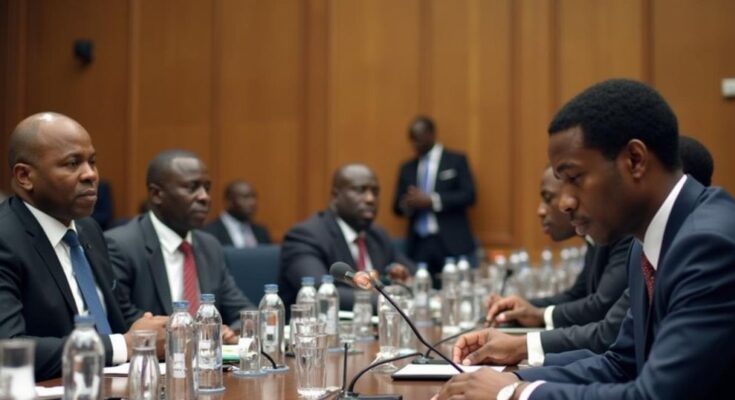CEPO urges the South Sudanese Presidency to prioritize the implementation of the R-ARCSS as the country prepares for elections postponed to December 2026. Edmund Yakani emphasizes the need for regular meetings and adequate funding to ensure success. Concerns about leadership interference and insufficient commitment to the peace agreement are highlighted as threats to the electoral process.
The Community Empowerment for Progress Organization (CEPO) has issued a call to the Presidency of South Sudan to facilitate the effective implementation of outstanding responsibilities outlined in the Revitalized Agreement on the Resolution of the Conflict in the Republic of South Sudan (R-ARCSS). Edmund Yakani, the Executive Director of CEPO, emphasized the necessity for the Presidency to ensure timely and sufficient funding for the R-ARCSS mechanisms to fulfill their objectives during the two-year extension of the transitional government. Yakani stated that if the Presidency continues to operate as it has over the past six years, the prospects of credible, free, fair, and peaceful elections in December 2026 would be significantly diminished. He remarked, “The Presidency needs to seriously undertake its primary responsibility and duty of holding regular meetings for aiding the genuine implementation of the pending tasks of R-ARCSS in the extended transitional period.” Despite these calls for action, Yakani expressed concerns that some individuals with personal interests may have usurped the powers of the Presidency, thereby hindering progress on the remaining chapters of the R-ARCSS. Moving forward, CEPO will actively monitor the performance of the Presidency over the next two years, specifically identifying government leaders who are resistant to the full implementation of the R-ARCSS. South Sudan originally planned to conduct its first General Election in December, but this has been deferred to December 2026 due to inadequate preparations. International observers have expressed growing frustration with the political dynamics in South Sudan, particularly the ongoing discord between President Salva Kiir and First Vice President Riek Machar, which has repeatedly obstructed progress towards the general elections.
The Revitalized Agreement on the Resolution of the Conflict in the Republic of South Sudan (R-ARCSS) is a crucial framework aimed at restoring peace and establishing a stable government following years of civil conflict. Initially, South Sudan was scheduled to hold its first General Election in December, a significant milestone for the country, but the lack of necessary preparations has led to a postponement. The political tug-of-war between President Salva Kiir and First Vice President Riek Machar has stymied progress, prompting organizations like CEPO to advocate for more responsible governance and genuine commitment to the agreement’s implementation.
In conclusion, the CEPO’s appeal underscores the urgent need for the President of South Sudan to prioritize the implementation of the R-ARCSS, with a focus on accountability and funding. The effective governance of the transitional period is essential for ensuring credible electoral processes in the future. Continuous monitoring by oversight organizations like CEPO will be crucial to maintain pressure on the leadership to fulfill their commitments.
Original Source: www.radiotamazuj.org




